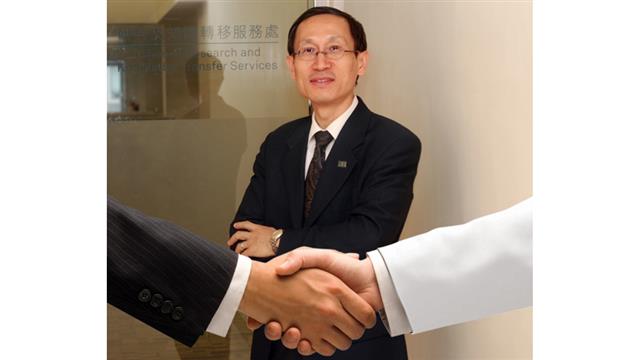What did you do prior to coming to CUHK?
After getting my PhD in the UK in mechanical engineering, I came back to Hong Kong to teach. My research interests are in mechanical system design, thermo-fluid dynamics and automatic control. I had been teaching for over 20 years, first at City University and then at HKU, before joining CUHK earlier this year. At HKU, in addition to teaching and research, I also headed a prestigious research centre that collaborated closely with industry partners in designing and providing hi-tech solutions to their equipment and material needs.
What made you decide to come to CUHK?
While I enjoyed doing research I had also come to understand the many obstacles of doing research in Hong Kong. I might be doing my bit in my area but I thought a lot more could be achieved if efforts are better organized to create a sustainable research culture across a wider sector of the research community and to foster a closer collaboration between university and industry. Thus, when I saw CUHK embracing a similar vision and starting to revamp its research administrative structure, I knew what role I could play here.
Can you talk about the reorganization of the erstwhile RAO and KTO into the new Office of Research and Knowledge Transfer Services (ORKTS)?
RAO and KTO were two independent offices with specific portfolios to facilitate our staff's research efforts at different stages of the process. We saw advantages in combining their strengths and expertise so that the whole is greater than the sum of its parts. The new ORKTS provides a one-stop service with an expanded scope to cover the three streams of research development: upstream (from grant application to publication); mid-stream (application and transfer to real-life solutions); and downstream (matching and collaborating with industry partners to commercialize the research outcome).
The personnel of the original offices were redeployed into eight teams in the new ORKTS, each with its designated tasks to facilitate researchers in each of the three streams of their research itinerary. We would not stop at the grant or the publication of research outcomes, but will follow through with identifying niches for transferring the outcomes outside the academia and chaperoning their seeing the light of day in society. ORKTS aims at no less than serving as the agent of transforming knowledge with real-life impact.
What's on your Do's list as Director of ORKTS?
On the short term, we will work on the better integration of the different teams in ORKTS to foster a service attitude. As the name of the office suggests, 'service' is very much part of our work and hence it's important to hammer out a new service culture among the colleagues. We'd have to know our 'clients' better, what they need and what is best for them in order to do our job efficiently and effectively.
On the longer term, we'd have to have a better understanding of the strengths and potential of CUHK and study and assess the different sectors or disciplines in Hong Kong, the region and the world for opportunities to address any need or fill in any gap in the market.
How do you see the direction and development of ORKTS?
With full support from the Research Committee and the University, we will try to strengthen communication with all the academic departments and faculty members. We will optimize our resources and manpower to offer a one-stop service to them with the view to enhancing the research capability of the University and in turn the reputation of the University in society and in the industries. When that happens, a virtuous cycle of the three streams of research development can be achieved and interest and support from the industries would be readily attracted.
How would you measure success of ORKTS?
Its performance can be assessed by conventional indicators such as the numbers of research grants handled, papers published, patents filed and the amounts generated from commercial contracts. But as ORKTS is also a servicing office within the CUHK administrative system, feedback from faculty members, members of the Research Committee, the University management and our corporate partners is also important.
How would you like the rest of the University community to work with ORKTS?
I would like more academic staff of CUHK, and not just deans, directors of research institutes or principal investigators, to know that we are there to facilitate their work. We would be proactive in reaching them and reaching out to outside partners through our personal communications, seminars and workshops. I hope that, regardless of positions and disciplines, our academic staff would put their faith and trust in us and work with us closely to take the research culture on campus to the next new height.


